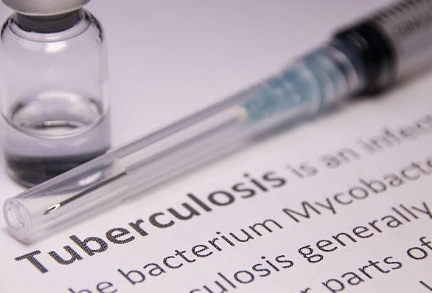Geneva, Nov 8 (IANS) A whopping 7.5 million people worldwide — the highest ever since records began in 1995 — were diagnosed with tuberculosis (TB) in 2022, the World Health Organization’s (WHO) 2023 global TB report revealed on Wednesday.
The massive spike is attributed to good recovery in access to and provision of health services in many countries, said the report, featuring data from 192 countries and areas.
It underscored a significant worldwide recovery in the scale-up of TB diagnosis and treatment services in 2022, following the disruptions caused due to Covid-19 pandemic.
However, it also called for accelerated efforts to achieve new targets.
The report showed that India, Indonesia and the Philippines, which together accounted for over 60 per cent of the global reductions in the number of people newly diagnosed with TB in 2020 and 2021, all recovered to beyond 2019 levels in 2022.
“For millennia, our ancestors suffered and died with tuberculosis, without knowing what it was, what caused it, or how to stop it,” said Tedros Adhanom Ghebreyesus, WHO Director-General, in the statement.
“Today, we have knowledge and tools they could only have dreamed of. We have political commitment, and we have an opportunity that no generation in the history of humanity has had: the opportunity to write the final chapter in the story of TB,” he added.
Globally, an estimated 10.6 million people fell ill with TB in 2022, up from 10.3 million in 2021.
Geographically, in 2022, most people who developed TB were in the WHO Regions of South-East Asia (46 per cent), Africa (23 per cent) and the Western Pacific (18 per cent), with smaller proportions in the Eastern Mediterranean (8.1 per cent), the Americas (3.1 per cent) and Europe (2.2 per cent).
The total number of TB-related deaths (including those among people with HIV) was 1.3 million in 2022, down from 1.4 million in 2021.
However, during the 2020-2022 period, Covid-19 disruptions resulted in nearly half a million more deaths from TB. TB continues to be the leading killer among people with HIV.
Multidrug-resistant TB (MDR-TB) remains a public health crisis.
While an estimated 410,000 people developed multidrug-resistant or rifampicin-resistant TB (MDR/RR-TB) in 2022, only about two in five people accessed treatment.
There is some progress in the development of new TB diagnostics, drugs and vaccines.
However, this is constrained by the overall level of investment in these areas.
Despite significant recovery in 2022, progress was insufficient to meet global TB targets set in 2018 with disruptions caused by the pandemic and ongoing conflicts being major contributing factors.
The net decrease in TB-related deaths from 2015 to 2022 was 19 per cent, falling far short of the WHO End TB Strategy milestone of a 75 per cent reduction by 2025.
About 50 per cent of TB patients and their households face total costs that are catastrophic (direct medical expenditures, non-medical expenditures and indirect costs such as income losses that amount to more than 20 per cent of total household income), far from the WHO End TB Strategy target of zero.
The new targets include reaching 90 per cent of people in need with TB prevention and care services; using a WHO-recommended rapid test as the first method of diagnosing TB; providing a health and social benefit package to all people with TB; ensuring the availability of at least one new TB vaccine that is safe and effective; and closing funding gaps for TB implementation and research by 2027.
–IANS
rvt/ksk/


Comments are closed.